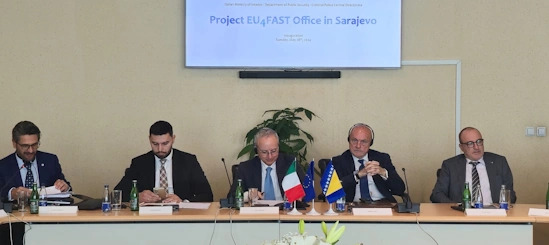In 2023, irregular border crossings into the EU soared to approximately 380,000, marking the highest level since 2016. This 17% increase from 2022 underscores a persistent upward trend over the past three years, according to the European Border and Coast Guard Agency, Frontex.
According to the U.N. Refugee Agency UNHCR, an astounding 35,000 migrants traversed the so-called Balkan route through Bosnia and Herzegovina in 2023, highlighting this pathway as a critical channel for illegal migration into Europe.
Earlier this year, Europol revealed that the Bosnia and Herzegovina-Croatia border had become the second most active hotspot for migrant smugglers in the Balkans in 2023. The EU law enforcement agency also warned of a significant surge in criminal activities along the Bosnia and Herzegovina-Croatia-Slovenia route in 2024.
The office Sarajevo aims to forge a robust network and foster a more impactful, unified approach to tackle this crime, with a particular emphasis on supporting and safeguarding victims.
“A senior officer from the Italian State Police will lead the new office, supervising the operations of five Italian police officers to be based in Sarajevo,” read the statement.
The office will collaborate closely with local authorities and international organizations to ensure the project’s success, while its director will also be responsible for coordinating three additional satellite offices situated in Serbia, Montenegro, and Kosovo.
The project is funded by the European Union, the German Federal Ministry for Economic Development and Cooperation, the Italian Ministry of the Interior, and the Dutch Ministry of Foreign Affairs and is supposed to strengthen the fight against migrant smuggling and human trafficking in the Western Balkans.
The international consortium implementing the project is led by the German Corporation for International Cooperation (Deutsche Gesellschaft für Internationale Zusammenarbeit - GIZ) and includes Austrian, German, Dutch, French, Croatian, Italian and Slovenian ministries and agencies.

